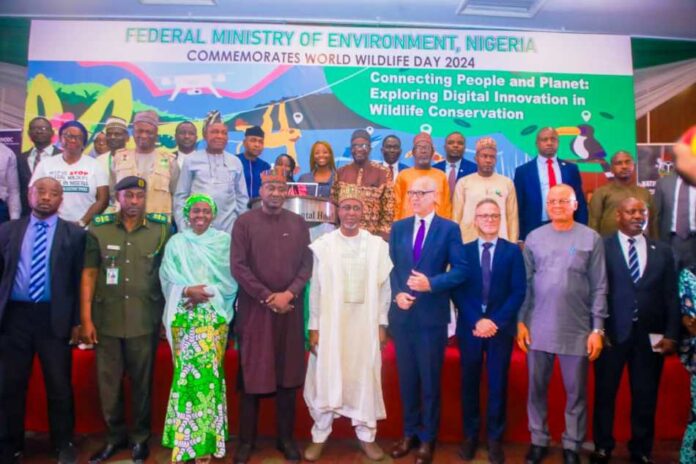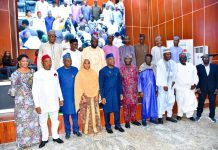The Minister of Environment, Balarabe Abbas Lawal has advocated for protection of the digital ecosystem globally, emphasizing the need to guard against cyber threats and safeguard data integrity on wildlife species.
The Minister disclosed this at the commemoration of the 2024 World Wildlife Day with the theme: “connecting people and planet: Exploring Digital Conservation” in Abuja.
Balarabe stressed that the technological advancement has offered unprecedented opportunities to enhance conservation efforts and forge deeper connections between humanity and the natural ecosystem.
“We must recognize the critical importance of leveraging digital solutions to address the myriad of challenges facing our planet’s ecosystems, notably combating illegal wildlife trade, mitigating habitat loss, tackling the impacts of climate,” he said.
The Minister added that harnessing the collective power of technology, we could unite in our efforts to safeguard biodiversity and ensure a sustainable future for our posterity.
He seized the opportunity to laud the United Nations Office on Drugs and Crime (UNODC) and other development partners for their unparalleled support towards the fight against Wildlife trafficking.
In his welcome address, the Permanent Secretary of the Federal Ministry of Environment, Mahmud Adam Kambari tasked the participants to reflect on the critical role that wildlife plays in maintaining the delicate balance of our ecosystems and sustaining life on Earth.
Kambari described his year’s world wildlife celebration as apt and in line with global best practices, opined that in Nigeria, we have seen firsthand the transformative impact of digital innovation in wildlife conservation, adding that Projects leveraging artificial intelligence, data analytics, and citizen science have enabled us to gather vital information, engage local communities, and implement targeted conservation interventions.
The Country Representative of UNODC office, Nigeria, Oliver Stolpe, in his presentation of the key findings and recommendations of the International Consortium for Combating Wildlife and Forest Crime Analytic Toolkit Assessment for Nigeria recalled some of the key findings from the Wildlife Chapter of UNODC’s Organised Crime Threat Assessment for Nigeria published in 2023.
He lamented that research identified armed groups to be involved in the illegal harvesting and trafficking of rosewood, with nine park rangers losing their lives in violent encounters with persons involved in an illegal logging in the Gashaka-Gumti National Park.
“We plan to engage young people as agents of change and employ their creativity as well as technological savviness in helping to protect the environment and to show to Nigerians the beauty of their land,” he said.
Ibrahim Haruna
Head, Press and Public Relations Unit






